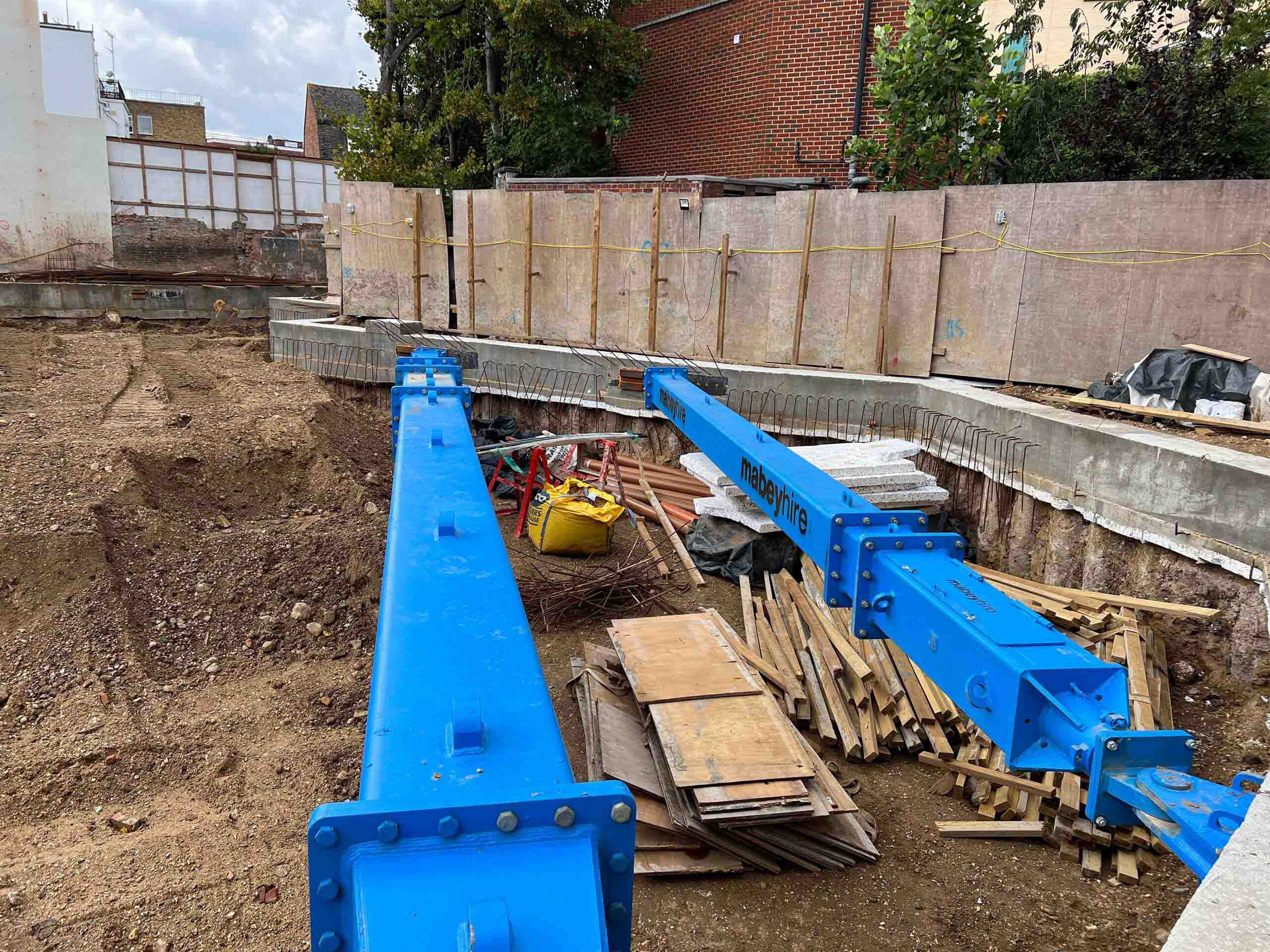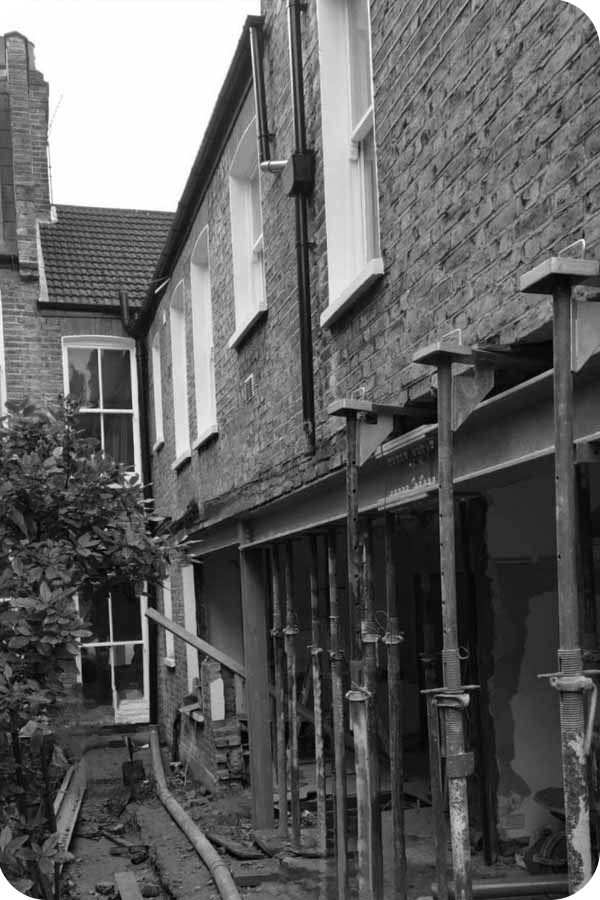Basment Impact Assessments
In crowded London, where space is scarce but you want to add value to your property and expand your home, renovating your basement is a smart solution. A Basement Impact Assessment (BIA) is an important step in planning. It looks at how building or renovating a basement could affect the environment and structures nearby. Some councils call it a Basement Method Statement.

What is a Basement Impact Assessment?
A Basement Impact Assessment checks how making a basement might affect the environment, nearby properties, and the structure you have. It’s a must for getting permission to build, especially in places like London. The assessment tries to find and fix any problems that might come from the new basement. These problems can be things like making the ground weak or increasing the risk of floods. By doing a Basement Impact Assessment, you make sure your project can work and is allowed.
Four Common facts of Basement Impact Assessment:
Checking the Structure
For a Basement Impact Assessment, you look closely at the basements near where you want to build. This helps you see if the buildings around can stay safe when you dig or if they can handle extra weight from the dirt.
Fixing Problems
The point of the assessment is to find problems and say how to fix them. This helps stop bad things from happening to the basements nearby. To do this, you might have to add things like extra support or systems to watch for ground movement when you work.
Following the Rules
Councils have rules for basement impact assessments. This is to keep people and places safe. You have to follow these rules, and your assessment has to meet what your local council say. These rules can say what problems to look for and what to do to keep neighboring properties next to your building safe.
Groundwater Management
Building a basement can mean digging below where the ground is wet. This can be hard to manage. A Basement Impact Assessment thinks about how this might affect water levels, like if it could flood and hurt nearby places. The assessment figures out ways to stop water from making problems for your basement and the area around
Contact us
I live at lower ground floor and the council are asking for a basement impact assessment, the extension I plan to do is not a basement because the land is all flat do I still need a Basement Impact assessment?
If your new space isn’t really a basement and the ground is flat, you might not need a Basement Impact Assessment. But you need to talk to your local council to be sure. Different places have different rules. Talk to them, tell them about your plans, and show them pictures of your place so they know what’s happening.
Stages of a Basement Impact Assessment
Desktop Screening report
– First Look: At the start, you see if your plans might change how water moves in the ground. If this is okay, you can move forward.
Site Inspection if required
Sometimes, you need to do more checks on the ground where you want to build. If you do, experts can help you with this part.
Detailed Impact Assessment
This part looks at all the things your building might change around it. Our Structural Engineer use specific software to make a model of what might happen.
Local Authority reivew
The council looks at your Basement Impact assessment. They want to make sure it’s safe and follows the rules. They check the building, the environment, and if your plan fits where you want to build.

What kind of investigation may have to be carried out for BIA?
To help with the Basement Impact Assessment, you might have to do some checks:
Check the Ground: People dig holes and look at the soil to see how strong it is. This is called a geotechnical Investigations
Water Check: In wet places, people might need to see how water moves in the ground to avoid problems. Known as Hydrogeological Studies
What Do I Need for a Basement Impact Assessment to Be Done?
To ensure a comprehensive basement impact assessment, you will need to provide certain information and documentation to the assessment team. These may include:
Architectural Plans: Detailed architectural plans of the proposed development are essential for the assessment team to understand the scope and scale of the project.
Structural Information: Information about the existing structure, including structural drawings and calculations, is necessary to evaluate the potential impact on the building’s stability.
Geological and Hydrogeological Data: Data regarding the geology and hydrogeology of the area, including soil composition, groundwater levels, and drainage patterns, is crucial for assessing the potential risks and impacts. You can check if you property is in Flood Risk which may indicate a high water table area by visit the goverment website
Environmental Considerations: If the proposed development may have environmental implications, such as impacts on protected species or habitats, you may need to provide relevant environmental assessments or studies.
Which Councils Require a Basement Impact Assessment?
Different councils want different things for Basement Impact Assessments. Some need them, and some don’t. In places with lots of water underground, like London, they’re often needed. To know if you need one, ask your local council. They can tell you the rules for your area.
Why AC Design Solution
AC Design Solution has helped hundreds of property owners in many London boroughs develop their basements, increasing the value of their property and expanding the footprint of their home.
Carrying out basement construction requires more than simply digging down into the foundations of your home. So if you’re just starting out on your renovation journey, or you’re in need of some guidance about dealing with your local planning authority, or whether your proposed development falls under permitted development rights, get in touch with us today.
To inquire about our basement impact assessment services or to request a consultation, contact us..
Expertise and Experience:
Our team consists of highly skilled professionals, including architects, engineers, and environmental consultants, with extensive experience in conducting basement impact assessments. We have successfully completed numerous assessments in various locations, giving us the expertise to handle even the most complex projects
Tailored Solutions
We understand that every project is unique, and we tailor our assessments to meet the specific requirements of your development. Our team works closely with you to understand your goals and concerns, developing customised mitigation strategies that address the specific risks identified
Efficient Timelines
Our team is dedicated to meeting deadlines and ensuring a smooth planning application process. We work diligently to complete the assessment within the agreed-upon timeline.
Council Approval
When dealing with planning matters, guarantees are not absolute. Nevertheless, it’s worth noting that our team possesses extensive expertise in crafting successful Basement Impact Assessments, having worked with diverse local authorities. This experience instills confidence in our ability to assist you effectively, offering similar favorable outcomes.